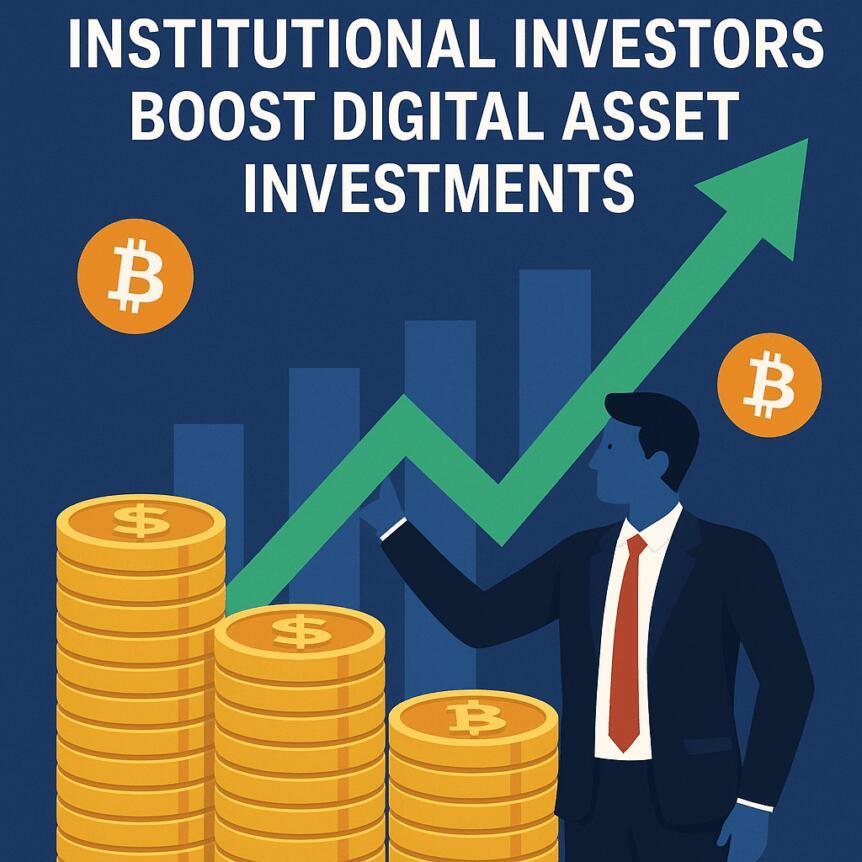
Institutional Investors Boost Digital Asset Investments
- Institutional allocation to digital assets is projected to nearly double from 7% to 16% by 2028. Most holdings are concentrated in stablecoins and tokenized assets, while cryptocurrencies like Bitcoin and Ethereum are noted for their strong returns. Blockchain and AI are central to digital transformation strategies, with many institutions applying these technologies across diverse operational functions. While confidence in digital assets is rising, a significant portion of respondents view hybrid finance models as transitional, with some doubting full replacement of traditional systems. Majority of institutions expect digital and tokenized investments to comprise a notable share of portfolios within the next decade.
Institutional interest in digital assets continues to grow, with a recent State Street report revealing that digital currencies now account for about 7% of their portfolios, a figure anticipated to reach 16% by 2028. The survey shows that holdings are mainly in stablecoins and tokenized versions of traditional assets, although cryptocurrencies like Bitcoin and Ethereum have delivered the most significant returns, with 27% of respondents naming Bitcoin as the top-performing asset.
While stablecoins and tokenized securities dominate current allocations, many institutions recognize the transformative potential of actual cryptocurrencies. The report indicates that private assets are viewed as the most promising candidates for tokenization, with most respondents expecting digital assets to become mainstream within the next decade. However, only a minimal 1% foresee a future where most investments are exclusively on-chain.
The survey, conducted with Oxford Economics, includes insights from over 300 institutional investors on their usage of digital assets, AI, and blockchain, as well as future capital allocation strategies. According to the data, digital assets are increasingly viewed as a strategic component, driven by the integration of blockchain and artificial intelligence into core operations.
Nearly all surveyed institutions are either implementing or planning strategies to use advanced technology to automate processes, enhance interoperability, and streamline workflows. About 29% see blockchain as a crucial element of their transformation plans, applying it beyond investment management to areas such as cash flow, data processing, and compliance functions.
Furthermore, generative AI is harnessed to accelerate digital asset development, with nearly half (45%) of respondents believing AI's recent advances will enable faster, more secure, and cost-effective creation of smart contracts, tokens, and blockchain infrastructures.
However, despite optimism, many institutions remain skeptical that blockchain-based systems will entirely replace traditional financial infrastructure. Nearly half (43%) expect hybrid decentralized and traditional systems to become standard within five years, although 14% now doubt that digital systems will completely supplant traditional trading and custody platforms.
As the crypto market matures, institutional players are navigating a balance between innovation and caution-a trend that signals continued evolution in how digital assets and emerging technologies shape the future of finance.
Crypto Investing Risk WarningCrypto assets are highly volatile. Your capital is at risk. Don't invest unless you're prepared to lose all the money you invest.
Legal Disclaimer:
MENAFN provides the
information “as is” without warranty of any kind. We do not accept
any responsibility or liability for the accuracy, content, images,
videos, licenses, completeness, legality, or reliability of the information
contained in this article. If you have any complaints or copyright
issues related to this article, kindly contact the provider above.


















Comments
No comment